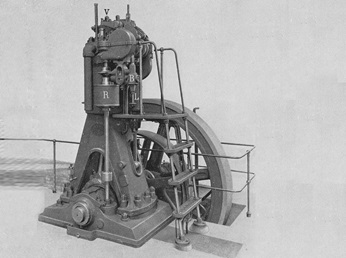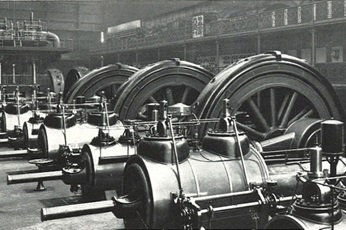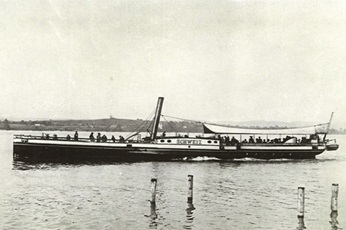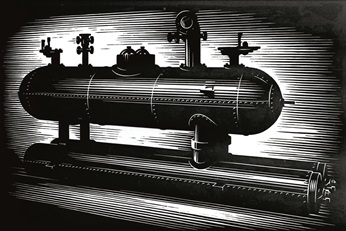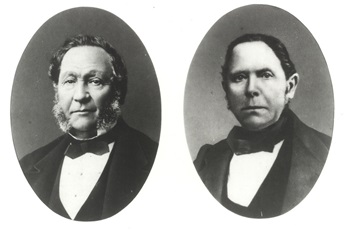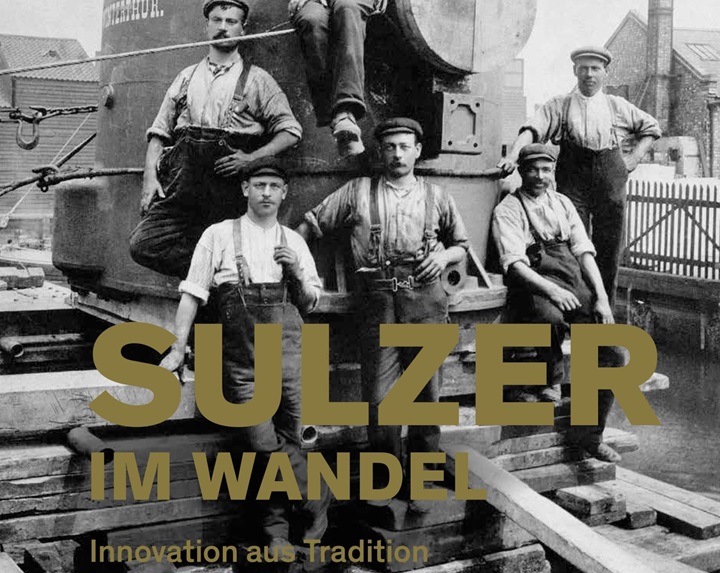Sustainably successful since 1834
1898
Cooperation with Rudolf Diesel leads to the development of the first Sulzer diesel engine. This engine gradually replaces the then-dominant steam engine.
1890
The first workers’ council in Switzerland is founded.
1881
Sulzer opens a subsidiary in Ludwigshafen on the Rhine (Germany). It flourishes, as does the parent company in Winterthur.
During the years following, sales offices are opened in Milan, Paris, Cairo, London, Moscow, Bucharest, and, in 1914, in Kobe (Japan).
1880
A new growth period begins: Sulzer experiences international success especially with steam engines. Employee figures continued to rise, reaching three thousand by the turn of the century.
Sulzer starts to build refrigerating machines.
1872
During the initial phase of Winterthur’s first large-scale social housing plan, twenty-four low-cost employee rental apartments are constructed in Veltheim, Winterthur. The “Society for Affordable Housing Construction” soon adds further apartment buildings and the first private homes for employees in other parts of Winterthur. (In 1989, the city of Winterthur receives the Wakker Prize — an award for cultural heritage — for its outstandingly maintained employee housing estates).
1870
To ensure an adequate supply of qualified young craftsmen, Sulzer opens the first in-house training school in Switzerland, including an apprentice workshop.
1867
Sulzer enjoys great successes at the World Exhibition in Paris and six years later in Vienna.
For the first time in its history, Sulzer employs over one thousand workers.
Extensive building activities are carried out at the original site in Winterthur.
Around 1860
The first sales office abroad is opened in Turin, Italy.
1859
The first trading-company agreement between the Sulzer brothers is made, whereby company activities are divided into divisions. Entrepreneurial thinking and the willingness to take a risk lead to the introduction of new products (such as steam engines and, later, steamboats) with more efficient industrial production methods.
1851
The English design engineer Charles Brown joins Sulzer. With the development of groundbreaking new steam engines — the first Sulzer steam engine left the workshop in 1854 — he is instrumental for the early successes and the growth of the company. Charles Brown’s expertise as an inventor and engineer and Johann Jakob Sulzer-Hirzel’s talents as an entrepreneur and salesman proved a winning combination over a period of two decades.
1845
A “Sickness-Benefit Association for Factory Workers” is founded. This is the first step towards a health insurance plan for the company.
1841
The first Sulzer steam engine installed in Winterthur creates a sensation.
1839
A new foundry is constructed, and the original building becomes a machine shop.
1836
Still largely a workshop establishment, the business then employs forty journeymen, laborers, and apprentices, some of whom receive room and board with the family. Though patriarchal in accordance with the times, the company takes the first steps towards a division of labor.
1834
Through an exchange with the city of Winterthur, Johann Jakob Sulzer-Neuffert acquires a 5000 m2 site on Zürcherstrasse, and lays the foundation stone of “Sulzer Brothers Foundry, Winterthur”, known today as “the 1834 building”. His two sons, Johann Jakob and Salomon, start producing cast iron. They also manufacture firefighting and other pumps as well as textile machinery and later set up a heating installation business.
The credo of the first Sulzer patron was: “Whatever you do, do it right. It will not cost you more time to do it well than to do it badly.” Jakob Sulzer (1782-1853)
